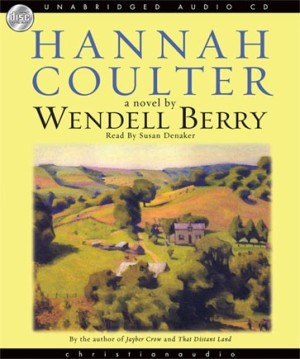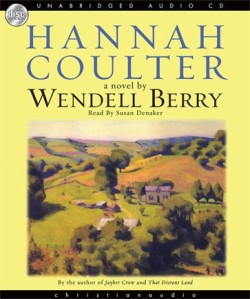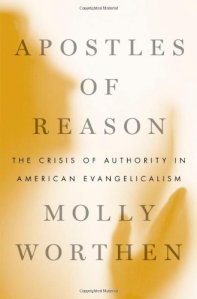I’m always on the outlook for metaphors that help us think more deeply about what history is and what historians do. But my quest is hardly systematic. There’s not enough time—not enough lifetimes—for that. I follow up leads that I stumble across and tips that my students give me. The latter can lead me into corners of the world of literature that I would never otherwise explore.
Science fiction is a case in point. I’ve never liked it, not even C. S. Lewis’s space trilogy, although at Wheaton we’re supposed to adore everything the man wrote. (I’m being facetious, although we do claim to own the wardrobe that inspired The Chronicles of Narnia.) But recently one of my students recommended that I check out Orson Scott Card’s Speaker for the Dead, and it was a good tip. The novel centers on a marvelous metaphor for a crucial role that historians can play.

I actually had to read two of Card’s novels. Before I could understand Speaker for the Dead, which contains the metaphor, I had to read its predecessor, Ender’s Game, for context. You may have seen the 2013 movie by the same name. It earned mixed reviews and bombed at the box office, but it follows the plot of the book reasonably well.
Here’s my two-minute synopsis of Ender’s Game, in case you need it. I promise I am not trying to make it sound sillier than it actually is: The setting is a century or so in the future, at a time when the world is still reeling from the attack of a race of insect-like beings called Buggers. (They’re called Formics in the movie). Although the Bugger invasion failed (after killing millions of humans), Earth’s leaders fear that these insect people will eventually come again and succeed. Enter Ender Wiggin, a child genius recruited by the military to save the human race.
After extensive training with other child prodigies, Ender is selected to travel to a distant planet for additional training on an especially sophisticated battle simulator, and he excels. He then learns to his horror (spoiler alert!) that his mentors have been manipulating him. Rather than taking part in a simulation, he has actually been engaged in a live battle. In fact, he has unwittingly orchestrated a preemptive counterstrike against the Bugger home planet that has apparently wiped out the only other known sentient race in the galaxy. The novel ends with Ender discovering one surviving Bugger queen pupa, who telepathically relates to him that the Buggers regretted their earlier attack of earth and posed no threat to humanity. Devastated by guilt, Ender resolves to devote his life to finding a new home where the Buggers can flourish again.
No, it’s not War and Peace, and if not for my student’s solemn assurance that it was worth it, I would never have continued on to Speaker for the Dead. But I did, and I am glad that I did. Early in the novel, set three thousand years in the future, we learn that after the Second Bugger War Ender abandoned the military for a different role. Adopting the pseudonym “Speaker for the Dead,” he used his conversations with the Bugger queen to tell the Buggers’ story and reveal the misunderstanding that led to their (apparent) extermination. Made a pariah on earth because of the part that he played in the genocide, Ender embraced his new identity as “Speaker for the Dead,” and for the past three millennia (I’m not even going to try to explain how this is supposedly possible) he has wandered across the galaxy at near light speed, going wherever someone requests his services.
As Card portrays him, the Speaker for the Dead is part funeral orator, part investigative reporter, but first and foremost, he is a historian. I don’t think Card ever uses the word, but that is Ender’s primary role. A character named Novinha explains that the job of the Speaker is to “discover the true causes and motives of the things that people did, and declare the truth of their lives after they were dead.” That’s not the only thing that a historian aspires to do, but surely it’s an important part.
Card’s “Speaker for the Dead” metaphor immediately struck me. It resonates with some of my favorite quotes regarding our obligation to the past: G. K. Chesterton’s plea that we listen to our ancestors and practice “the democracy of the dead.” Beth Schweiger’s observation that the goal of the historian is to “make a relationship with the dead.” David Harlan’s insistence that history should be “a conversation with the dead.”
It also evokes Wendell Berry’s lament that we often abuse our responsibility to the dead. “I dislike for the dead to be made to agree with whatever some powerful living person wants to say,” the title character in Hannah Coulter tells us, thinking of her late husband who had died in WWII. “The dead are helpless,” she says. “The living must protect the dead.”
In his introduction to Speaker for the Dead, Orson Scott Card reveals that he shares Hannah’s concern. “I grew dissatisfied with the way that we . . . revise the life of the dead,” he writes,” giving the dead “a story so different from their actual life that, in effect, we kill them all over again.” Card continues,
To understand who a person really was, what his or her life really meant, the speaker for the dead would have to explain their self-story—what they meant to do, what they actually did, what they regretted, what they rejoiced in. That’s the story that we never know, the story that we never can know.
Unless you’re Ender Wiggins.
It’s not necessary to know all the plot details of Speaker for the Dead to follow Card’s metaphor. It’s enough to know that the novel centers on a call for Ender to Lusitania, not the WWI-era British passenger liner but a sparsely populated planet in a remote corner of the galaxy. There’s a small colony of Earth recently established there, as well as a tribe of another alien race that the humans call porquinhos—the first sentient beings that humans have encountered in three thousand years of space travel. (Humans are not alone in Card’s imagined universe, but it’s also not very crowded.) The plot follows two intertwined threads: Ender’s preparations to speak for one of the deceased colonists, and his efforts to help the colonists bridge the cultural chasm that divides them from their alien neighbors.
So here are four features that make the concept of “Speaker for the Dead” a useful metaphor for thinking about history and the historian. First, in his role as Speaker, Ender recognizes that his audience harbors a range of agendas. Some are merely curious or in search of entertainment. Some seek vindication or revenge. A few seek understanding. The metaphor calls us to consider what we really want when we consume history.
Second, Ender knows that truth about the past is complex. He hopes that his words will be a blessing; he is certain they will be controversial. As he shares his findings, some among his audience are thankful, some offended, some uncomfortable, some embarrassed. Because his role is to speak truth about the dead, he will challenge and convict as well as comfort.
Third, the Speaker’s ability to know the dead is the same aptitude that allows him to understand the porquinhos in the present. Card tells us that Ender is a successful Speaker because of “his ability to see events as someone else saw them.” This is why learning to think historically is one of the best ways to equip ourselves to transcend the cultural fault lines that divide our world today. Both require Ender’s gift of seeing the world through others’ eyes.
Fourth, Card makes clear that exercising that gift is impossible without love. “In history,” Beth Schweiger writes, “the call to love one’s neighbor is extended to the dead.” When Ender offends some of the Lusitanians in how he speaks for the dead, they have a ready explanation: he doesn’t respect them. Even those who concede the truth of what he says about the past question his motive. “It’s easy to tell the truth,” Novinha tells her daughter, “when you don’t love anybody.” But Card gives the last word to Novinha’s daughter, Ela, who insists that the Speaker loved the dead he has spoken for. “I think I know something, Mother,” she explains. “I think you can’t possibly know the truth about somebody unless you love them.”
No single metaphor can capture all that is involved when we try to understand, love, and learn from the past, but I think the concept of “Speaker for the Dead” can carry us a long ways. I’d be happy to hear your thoughts, as well as any tips you might share about other metaphors you find useful.
Back with more soon.







